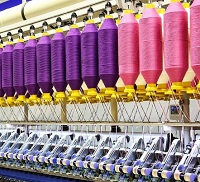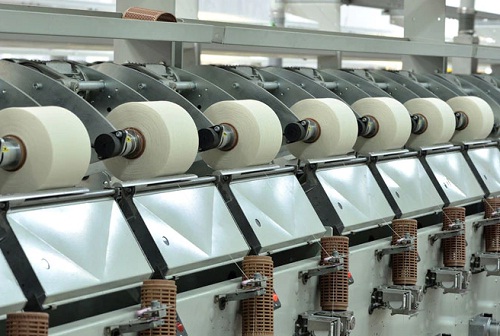 Over the past decade, regulators and customers across the globe have been scrutinizing the textile industry for its impact on the environment. The Biden government recently announced plans to amend reporting requirements for US Securities and Exchange Commission, making climate disclosures compulsory for companies.
Over the past decade, regulators and customers across the globe have been scrutinizing the textile industry for its impact on the environment. The Biden government recently announced plans to amend reporting requirements for US Securities and Exchange Commission, making climate disclosures compulsory for companies.
The European Union plans to increase transparency by incorporating reporting requirements for the textile industry. In November 2020, the UK urged a few companies to align their rules for climate-risk reporting, with the recommendations of the Task Force for Climate-Related Financial Disclosures’ (TCFD). In March, the Union released its Circular Economy Action Plan identifying textiles as fourth biggest user of raw materials and textiles after food, housing and transport. The Action Plan also hinted at the Commission’s plans to improve climate disclosures in its upcoming review of the EU’s Non-Financial Reporting Directive.
Accountability on environmental claims
Besides a growing demand for sustainable products, the fashion and textile industry also faces litigation for making false environmental claims about their products. In May 2019, a US Department of Agriculture (USDA) report detailed the legal actions taken by its National Organic Program against manufacturers who wrongly labeled their products as organic. People’s groups like Greenpeace are also protesting against companies that fail to comply with FTC’s green marketing guidelines.
products. In May 2019, a US Department of Agriculture (USDA) report detailed the legal actions taken by its National Organic Program against manufacturers who wrongly labeled their products as organic. People’s groups like Greenpeace are also protesting against companies that fail to comply with FTC’s green marketing guidelines.
The New Consumer Agenda released by the EU in November 2020 also emphasized on the need for protecting consumers against greenwashing. It urged companies to substantiate their environmental claims through Product and Organization Environmental Footprint methods.
Focus on human rights violations
Besides ensuring transparency in supply chains, the fashion industry is also addressing human rights violations. In November 2020, US Customs and Border Protection (CBP) issued a Withhold Release Order for cotton and cotton products originating from China’s Xinjiang Production and Construction Corporation (XPCC) and its subordinate and affiliated entities. The order was issued on the basis of information received about use forced labor in these companies. This was followed by similar WROs aimed at eliminating state-sponsored forced labor in the Xinjiang Uyghur Autonomous Region. The CBP issued five more WROs in September 2020 involving hair products, apparel, and cotton.
Stakeholders will continue to scrutinize environmental and human rights claims made by fashion companies in 2021. They need to closely track legislative, regulatory, and enforcement developments particularly those disclosures made mandatory by the Biden government. In addition, they also need to ensure effective supplier oversight and accountability to ensure the accuracy of claims made by companies.












